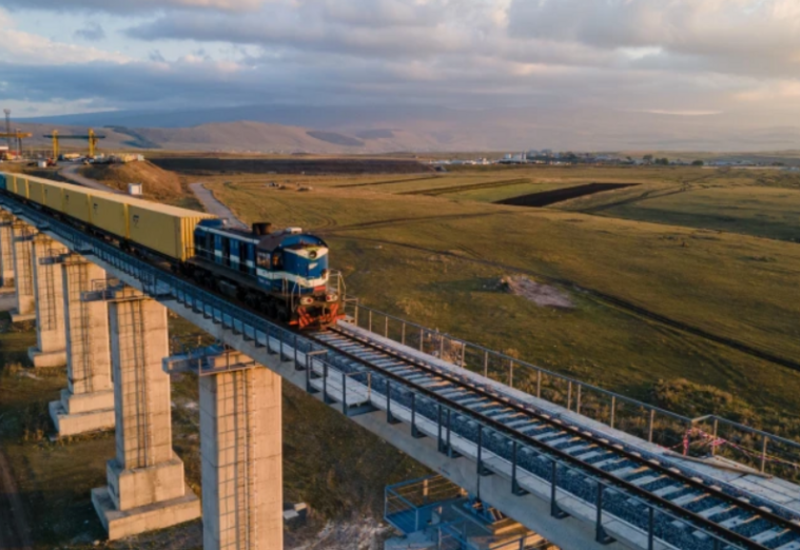|
|
TODAY.AZ / Politics
British Ambassador warned of Azerbaijan oil pipeline risk
21 August 2006 [10:39] - TODAY.AZ

The $3.5bn pipeline, built by a BP-led consortium, is a vital source of crude oil for Britain and the west. Up to a million barrels a day are pumped through the pipe, which runs more than 1,100 miles from Azerbaijan through Georgia to Turkey.
Campaigners opposed the pipeline, which opened last year, as it crossed seven war zones, damaged the environment and exacerbated global warming. They told the government before it gave financial backing to the project that it was "a major security risk".
The Azerbaijan government has claimed to have intelligence that local insurgents and al-Qaida are planning to sabotage the pipeline. In a "restricted" telegram in 2004 Laurie Bristow, Britain's ambassador in Azerbaijan, warned with "growing concern" that if it were attacked the Azerbaijan government was incapable of deploying effective emergency teams.
Mr Bristow said given the "weaknesses and serious gaps", a terrorist attack or accident would harm "BP's largest overseas investment" and Britain's reputation for managing large construction projects.
The ambassador wrote that the "good news" was that Ilham Aliyev was funding an 800-strong force to protect the pipeline. But "the bad news" was there was no machinery to co-ordinate the work of this force with other agencies, such as the police, ambulance and fire service.
"So in a major civil contingency or terrorist attack, apart from the purely military response, there would be no civil command structure, no lead agency and probably no effective communication between relevant ministries and agencies."
The US and Britain rely on Azerbaijan's huge oil reserves to reduce their dependency on the turbulent Middle East.
The telegram was released under the Freedom of Information Act to the Corner House, one of the groups campaigning against the pipeline. Nick Hildyard, of the Corner House, said: "BP got hundreds of millions of pounds in public money for this project. Critics who warned of the dangers of terrorism and pollution were brushed aside. Instead the government gave BP the money on the basis of assurances that have now proved worthless".
A Foreign Office spokesman said: "Much progress has been made in relation to the security of the pipeline in the last two years. The embassy has been working closely with the Azeri authorities on contingency planning and joined-up responses to terrorist activity."
/www.guardian.co.uk/
URL: http://www.today.az/news/politics/29197.html
 Print version
Print version
Connect with us. Get latest news and updates.
See Also
- 05 February 2026 [11:11]
Azerbaijan and Armenia in Abu Dhabi - how one leader changed world - 05 February 2026 [10:25]
Footage of Zayed Award for Human Fraternity ceremony posted on President Ilham Aliyev's social media accounts - 04 February 2026 [13:13]
Armenian emblem with two heads - 04 February 2026 [11:11]
Azerbaijan, Armenia and Masdar - 04 February 2026 [09:33]
President Ilham Aliyev held expanded meeting with Armenian Prime Minister in Abu Dhabi - 03 February 2026 [14:14]
Rumors about the Catholicos’ arrest are circulating in Armenia once again, raising the question of their purpose - 03 February 2026 [12:12]
Zangezur corridor become part of TEN-T: European Union is joining fight for South Caucasus - 03 February 2026 [10:28]
President Ilham Aliyev meets with Secretary General of Muslim Council of Elders in Abu Dhabi - 02 February 2026 [18:03]
Youth Day 2026: Azerbaijan recognizes young achievements - 02 February 2026 [13:13]
The army is being taken away from Etchmiadzin
Most Popular
 Zangezur corridor become part of TEN-T: European Union is joining fight for South Caucasus
Zangezur corridor become part of TEN-T: European Union is joining fight for South Caucasus
 US moving forces into Middle East - What comes next with Iran?
US moving forces into Middle East - What comes next with Iran?
 The army is being taken away from Etchmiadzin
The army is being taken away from Etchmiadzin
 Norwegian parliament to debate abolishing monarchy over 'Epstein' crisis
Norwegian parliament to debate abolishing monarchy over 'Epstein' crisis
 SOCAR, Huawei discuss digital transformation and advanced technologies in oil, gas sector
SOCAR, Huawei discuss digital transformation and advanced technologies in oil, gas sector
 bp commemorates Magsud Ibrahimbayov’s birth anniversary
bp commemorates Magsud Ibrahimbayov’s birth anniversary
 Rumors about the Catholicos’ arrest are circulating in Armenia once again, raising the question of their purpose
Rumors about the Catholicos’ arrest are circulating in Armenia once again, raising the question of their purpose
